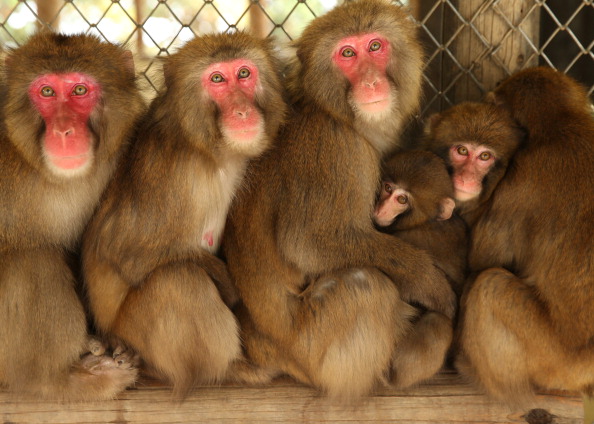HIV vaccine proven effective in monkeys


A free daily email with the biggest news stories of the day – and the best features from TheWeek.com
You are now subscribed
Your newsletter sign-up was successful
Scientists at the Scripps Research Institute in Florida announced Wednesday that a new drug is effective in protecting monkeys from an animal version of HIV. The findings could have greater implications as researchers work to create an HIV vaccine for humans.
Macaque monkeys that were treated with the prototype drug, eCD4-Ig, were able to fight off repeated doses of HIV, according to the study, published in the journal Nature. Michael Farzan, leader of the study, told AFP that the trial successfully found "a way to achieve long-lived, effective, vaccine-like protection from HIV 1" for the monkeys.
The drug contains two imitation receptors to trick the HIV virus into docking early, which prevents it from becoming attached to cells in the animals' immune systems. After executing the procedure once, the virus becomes harmless, AFP reports. Even when the monkeys were infected with 16 times the infectious amount of the virus, the animals treated with the drug successfully fought it off.
The Week
Escape your echo chamber. Get the facts behind the news, plus analysis from multiple perspectives.

Sign up for The Week's Free Newsletters
From our morning news briefing to a weekly Good News Newsletter, get the best of The Week delivered directly to your inbox.
From our morning news briefing to a weekly Good News Newsletter, get the best of The Week delivered directly to your inbox.
A free daily email with the biggest news stories of the day – and the best features from TheWeek.com
Meghan DeMaria is a staff writer at TheWeek.com. She has previously worked for USA Today and Marie Claire.
